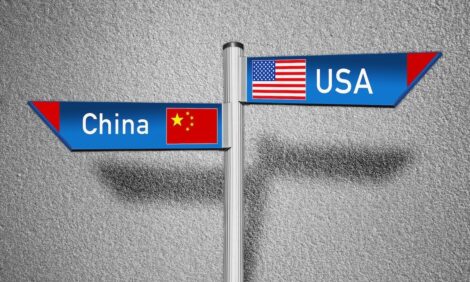



Import Restrictions Following Dioxin Scare Removed
GLOBAL - Hong Kong, the Philippines and Serbia are to lift all import restrictions they introduced after the dioxin incident in Germany.They are able to do so as they have received the necessary information and reassurance that the situation is under control and that products can be safely imported from the EU, according to European Commission Trade officials.
On 27 December 2010, the German authorities informed the European Commission that a batch of fatty acids, which was meant to be used for technical purposes, had been mixed with fat for the production of feed. At the earliest opportunity, the German authorities had imposed strict controls to ensure that no contaminated feed or food was placed on the EU market or exported to third countries.
A fact-finding mission by the Food and Veterinary Office (FVO), the European Commission inspection service of the Health and Consumers Directorate General, took place in Germany from 26 to 28 January 2011.
The mission team did not find any deficiencies which would call into question the effectiveness of the corrective measures taken by the German authorities to tackle the contamination. These measures, which involved very significant resources, were found to have been carried out in a professional and competent manner.
The EU Member States, meeting in the framework of the Standing Committee on the Food Chain and Animal Health on 22 February 2011 endorsed a statement recognising that the German authorities had been managing the contamination incident very efficiently and that they had adopted a very strict precautionary approach to manage the incident with a view to ensuring a high level of feed and food safety.
They determined that the contamination incident is fully under control by the German authorities and there is no risk that potentially contaminated food and feed are placed on the EU market or dispatched to third countries.
"This incident has once more demonstrated the high reliability, capacity and effectiveness of the EU food safety system to identify and rectify problems which may arise. This is of great comfort not only to the EU consumer, but also to third countries importing from the EU," said the EC Trade office.
"Unfortunately however, the EU continues to face unjustified and serious import restrictions from several third countries. In most cases these restrictions affect pork products and/or Germany, while in a few cases, they affect all products of animal origin and/or all EU Member States.
"More specifically, we have been informed that:
- Belarus and China have suspended imports of certain products from Germany;
- Moldova, which lifted their ban on live animals, animal products and feed from Germany has introduced additional certification requirements to be provided by Germany (in practice, re-establishing a ban);
- Argentina, Japan, Oman, Russia, Singapore, South Korea, Taiwan and Ukraine have introduced "hold and dioxin testing" measures (before products are allowed to enter their countries)."
The European Commission - together with Germany and the EU Delegations in those third countries where import restrictions persist - continue to press the competent authorities to lift any remaining unjustified import bans or additional testing requirements. We also invite EU business to continue to inform us of any developments in this matter.
In 2010, exports of pig meat from the EU were valued at approximately €3.9 billion.
It is anticipated that the actions of the Market Access Partnership should lead to an increase in exports from this level in 2011.






